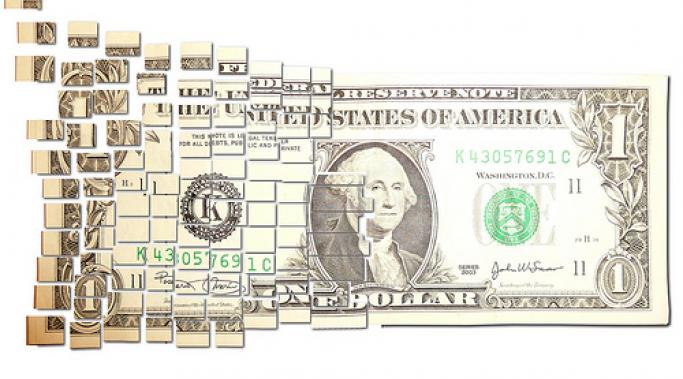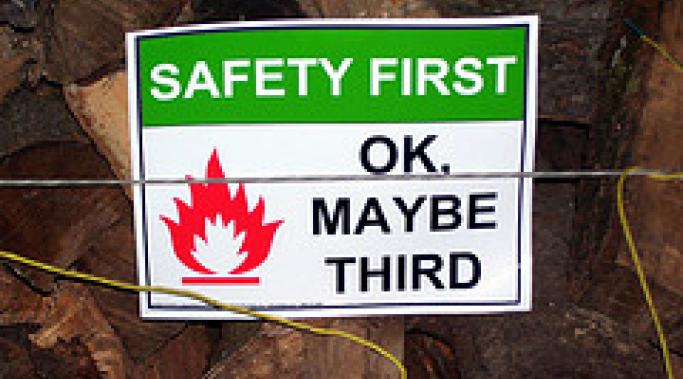On a scale of 1-10 how annoying is it when therapists ask questions which sound more like triage than psychotherapy?
One of my commenters took me to task for not talking much (or indeed at all) about the behavioral side of cognitive behavioral therapy (CBT) in a recent post. I shall now regale you with exciting tales of behavioral psychology in order to rectify the situation. Or not, since I expect your definition of exciting extends a touch beyond this topic.
My somewhat love-hate relationship with the B part of CBT aside, the real question is what works.
Anxiety Treatment – Treating Anxiety
One of the things that drives me crazier than usual is this notion that anxiety is in overwhelming proportion amenable to rational thought on the part of the person suffering from the anxiety disorder. It's a persistent idea. It's also wrong.
Cognitive behavioral therapy: What they don't tell you, why you should find out
Feel free to question my emotional competence but I'm not insane. For that matter, most people with mental illness are not insane.
This may be obvious but for many it's not. Anyway, how many times have you thought, 'oh goodness, I must be really losing it this time' during the course of mental health difficulties?
It's a common concern that can dramatically increase the amount of anxiety a person experiences. It may also inhibit their ability to trust, and to ask for help.
Happy is what brings healthy, and viceversa, so it can't be that much of a surprise anxiety and depression have had some pretty rough consequences on my health; High blood pressure at 25, on-and-off flings with anemia, near-constant sleep deprivation.
I may as well have an imp bouncing up and down on my kidneys whilst someone tells my nervous system to pump out all the stress hormones its got, so I can feel normal, or at least prepared. Like a Girl Scout on crack. That's PTSD hypervigilance for you.
It's also that sometimes our bodies express what we are otherwise unwilling, or unable to say.
Even after all this talking, and doing, fixing, and mulling-over, and redoing, I still find that I go through stages of really, really disliking dealing with myself, all this: the anxiety.
I worry about the things that maybe I can't fix.
That's potentially the hardest thing to face about the words which preface my diagnosis; It isn't PTSD. It's 'chronic, severe' PTSD.
So you see, there's really no getting out of it. I can't say, "well, I only have a little post traumatic stress," or "Anxiety only gets this bit of my life!". It gets rather a lot, actually. And people with anxiety disorders don't get nearly enough say about it. Not. nearly. enough.
I come up against this wall plenty, in treating anxiety: Combating the sense of hopelessness, of powerlessness, that only too often accompanies the worst symptoms of anxiety disorders.
How do I not get stuck when simply feeling things seems way above my pay grade?
"If you know neither yourself nor your enemy,
you will always endanger yourself."
-The Art of War
Tomorrow is Judgment Day, according to the followers of Harold Camping. Believers say they will be taken up to Heaven, while the rest of us anxiously await the apocalypse, come October 21 2011.
I have to ask:
If the end of the world is tomorrow, why don't more of us believe it?
Anxiety and ego strength
The answer says a lot about the way people deal with self-doubt, anxiety. And this is just one example of catastrophic, prepare-thyselves thinking.
Is panic emotional pollution?
Running on adrenaline, cortisol -the fear center of the brain staging neurochemical warfare on your nervous system- is the equivalent of climate change. It's dangerous. It's doing your whole system damage you can't even see: Forests for trees.
Anxiety: I can't stand it anymore
Anxiety alters the way our minds and bodies respond to stress so that it's harder, in the long term, to return to a state of calm and restfulness.
I can't stand it anymore. If you have an anxiety disorder, you know what I mean.
Have you ever felt safe?
Maybe that seems like a stupid question, and if it does, consider yourself lucky is about all I can say. My therapist asked me something like it once, and I ended up triggered, taking a 20 minute tangent via Intellectuals 'R Us to pick up a freakin' clue.
Look hard enough at most things in modern life and they are pretty scary.
Panic: Life = risk?
Life = risk? Is that as good as things get?? Well, catastrophizing ever so slightly less, life = many things but in amongst them, inevitably, is an element of risk.
Anxiety manifests itself in the everyday, supposedly humdrum of it all, and fear has a way of telling me things which are otherwise impossible to speak; The things I cannot acknowledge must still be expressed, for so long as they are part of me, they will find ways to be.
And so it is that the common cliches that clutter up the mind become the stuff of our most intense anxieties, and preoccupations:









